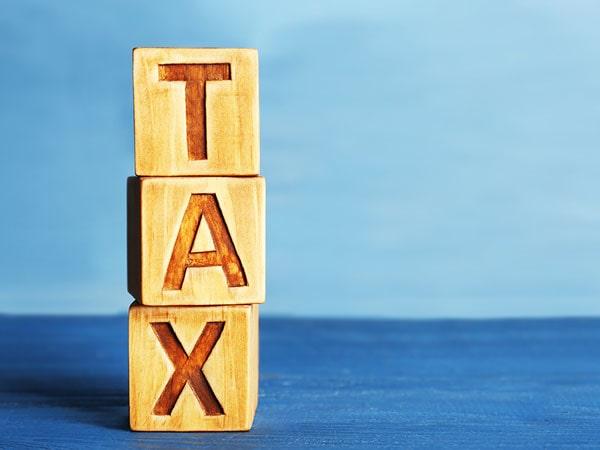- 7 minutes read
Table of contents
- What are Dividends in Singapore, and how do they work?
- Legislation and Regulation of Dividends in Singapore
- What are the general practices for dividend payments in Singapore?
- Dividend tax in Singapore
- Dividends not taxable in Singapore
- Taxable Dividends in Singapore
- Taxation of Dividends Received from Abroad
- Dividend Declaration in Singapore
- How does the dividend payment system in Singapore differ from other countries?
- FAQ
- Conclusion
Singapore is a recognized international hub and a key gateway for investment projects in Southeast Asia. Singapore possesses a stable political framework. It boasts a trustworthy legal system and a well-established rule of law. A favourable tax environment and an efficient administration improve the investment climate even further. Singapore also has a branch network of investment treaties and double taxation agreements. All these elements combine to make Singapore an attractive location for structuring investments.
What are Dividends in Singapore, and how do they work?
When a business produces money, it typically has two alternatives. On one hand, it can reinvest this money in the company by expanding its operations, purchasing new equipment, etc. Money spent this way is called “retained earnings.” Alternatively, it can use its profits to pay its investors. Assets paid to investors in this way are called “dividends”.
Dividends are a part of a company’s profits that it returns to its shareholders. They provide a way for shareholders to make money from an investment without selling their shares. Dividend payments are based on the number of shares an investor owns. They can be paid monthly, quarterly, semi-annually or annually. In Singapore, they are defined as the distribution of a company’s profits to its shareholders, based on the number of shares they hold. However, not all companies distribute profit each year. Some prefer to reinvest their profits in the company.
Dividends provide attractive incentives for investors. They ensure that the company they have invested in is profitable and that there is a high probability of future profits. In many countries, they are also given a special tax status.
Quickly select a jurisdiction and register your company anywhere in the world online

Legislation and Regulation of Dividends in Singapore
- Companies Act (1967). This legislative act regulates Singaporean company law, which also contains rules about taxation. It outlines the procedure and specifications of payment and declaration of dividends. The act imposes limits on the distribution of profit. Those limits safeguard creditors and maintain the financial stability of the business. It includes the need to do a solvency test before distributing profit. It also caps the amount of capital that the company may use to distribute profit.
- Income Tax Act (1947). The Income Tax Act governs Singapore’s income taxation. It defines the criteria for how dividends earned by natural and legal persons are taxed. The act also covers the taxation of profit received from overseas corporations.
- Securities and Futures Act (2001). This act focuses on securities trading. But, it also includes a provision about dividends disclosure. According to the law, listed firms must provide dividend disclosure information. It includes declaration, payment, and record dates. Additionally, it controls insider trading and outlaws the manipulation.
- Singapore Code on Takeovers and Mergers (1992). The code specifies rules for profit-sharing during takeover or merger transactions. It ensures fair compensation for shareholders and proper transactions.
- Companies (Accounting Standards) Regulations (2003). The regulations specify the categorization, measurement, and disclosure requirements for dividends. It also outlines their recording in financial statements. Also, the act contains the information that must the financial statement must contain. It includes dividend income, receivables, and payouts to shareholders.
What are the general practices for dividend payments in Singapore?
As a private limited company in Singapore, it is crucial to follow certain procedures and regulations. The distribution of profit requires the following steps:
- Determine adequate profit. You cannot distribute funds from capital reserves. It is important to ensure that the firm has enough profit before distributing it. The director should examine financial accounts to see whether distributable earnings are present.
- Receive approval from an executive body of the company. The board of directors (director) must provide approval for the distribution of profit. He checks the company’s financial situation. It includes cash flow needs, projected future growth, and existing obligations. The director must ensure that the profit distribution won’t harm the financial capacity.
- Receive approval from shareholders. At the general meeting, shareholders decide on the final approval of profit distribution. They must pass an appropriate resolution by at least a majority of votes. Annual profit distribution requires a qualified majority of votes.
- Announce dividend payment. The corporation announces the payments to shareholders after receiving permission from the shareholders. This can be accomplished by mailing or emailing circulars. Posting materials through the company website is another option. The announcement must include the amount, payment date, and record date.
- Set the record date. The record date is the deadline to decide which shareholders are eligible to receive dividends. To be eligible for the profit distribution, shareholders must be listed in the company’s records on the record date or earlier.
- Set the payment date. The company distributes the profit to shareholders on the specified payment date. The payment can proceed by dividend checks or electronic payments. The company must record all dividend payments.
- Maintain appropriate records. The corporation gives shareholders the necessary documents for recordkeeping and tax reporting. Dividend vouchers or statements are the most common. These documents help to record income on their tax returns.

Dividend tax in Singapore
Both individuals and companies in Singapore are subject to taxes on profits generated within the city-state. Income is taxable when it accrues in or is derived from Singapore. It does not matter whether or not the individual is resident in Singapore. Income derived outside Singapore is only taxable if it is received by a resident individual through a partnership.
But, the Singapore dividend tax system can be complex due to the various rules and regulations. The main point is to determine whether your dividends are classified as taxable or non-taxable.
Dividends not taxable in Singapore
Natural persons in Singapore are usually exempt from dividend taxes. There is no separate withholding tax on dividend. It occurs due to a one-tier corporate taxation system. The reason for this is that the profits from which dividends are paid have already been taxed at the corporate level.
Taxable Dividends in Singapore
In Singapore, some profit distributions are taxed on the recipient’s income. The following fall under this category:
- income distributed by co-operatives;
- income distributed by real estate investment trusts where the distribution is obtained by persons through a partnership in Singapore;
- income distributed by a foreign company, obtained by individuals through a partnership in Singapore.
Have questions? Contact us!
*Your contact information will be used for our inner purposes and only with the aim to provide you with the best business solutions.
Taxation of Dividends Received from Abroad
Singapore usually does not apply taxes on overseas dividends received by Singapore residents. In income distributed by co-operatives;
- The distributed profit has already been subject to tax in the foreign country where it is incorporated.
- The highest corporate tax rate of this jurisdiction is at least 15%.
- The Comptroller of Income Tax is satisfied that the tax exemption would be beneficial to the Singaporean resident.
Visit the Inland Revenue Authority of Singapore (IRAS) website to learn more about taxation in Singapore.
Dividend Declaration in Singapore
In general, a dividend declaration is a formal announcement to shareholders of the profit distribution. The company may declare dividends only if there are profits available at the time of declaration. Note that you might face a fine or a jail sentence if you issue distribute earnings when your firm has no profit. The declaration procedure usually requires four steps:
- Choose the payment period. Singapore dividend system allows annual and interim distribution of profit.
- Annual profit distribution. It also may be referred to as “final dividends” and requires approval from an Annual General Meeting. Once your company’s financial statement has been made public and your annual earnings have been verified, you can distribute your profit.
- Interim dividends, which can be announced anytime and do not need shareholders’ approval.
- Pass company resolutions. Both resolutions from the director and shareholders are needed. To declare final dividends, shareholders shall pass a special resolution, which requires at least 75% of votes.
- Declare dividends. You can legally declare your dividend on the declaration date once the corporate resolution is passed. Your declaration shall specify the amounts, the record date, the ex-dividend date, and the payment date. The record date is the deadline for the investor to be on the company’s books to earn a profit. The ex-dividend date is the deadline by which investors must purchase shares to receive the payment. The payment date is the day on which the corporation distributes the profit to shareholders.
- Issue vouchers. After the declaration, be sure to distribute dividend vouchers to your shareholders. It is essentially a dividend receipt that contains all data of the payment, such as shareholder names, date of issuance, number of shares, total amount paid, and so on.

How does the dividend payment system in Singapore differ from other countries?
The profit payout structure in Singapore is like that of many other jurisdictions. But, there are a few notable features. Here are a few ways in which the dividend payment system in Singapore differs from the others:
- Singapore dividend tax system provides for single-level taxation. Corporate profits are subject to tax. However, payouts to shareholders are usually not subject to extra taxes. It differs from other systems where shareholders may face additional taxes on dividends.
- Preferential taxation of foreign dividends. Income from shares in foreign companies is generally not taxed in Singapore. In this case, they had to be taxed at their place of origin and meet certain requirements. As a result, Singapore looks like an attractive destination for investors who receive overseas income.
- Use of technology. Singapore has made progress in implementing technological innovation for corporate profit sharing. Electronic payments such as direct bank transfers or electronic orders are widely used. They increase efficiency and convenience for shareholders.
FAQ
What is the withholding tax (WHT) in Singapore for UK dividends?
Singapore does not imply withholding tax on dividends. Earnings from corporate shares received from the UK are included in the general corporate income and taxed by a standard corporate tax rate which is 15%. However, dividends from abroad may not be included in a tax base if the following conditions apply:
- The payments have already been subject to tax in the UK.
- The Comptroller of Income Tax is satisfied that the tax exemption would be beneficial to the Singaporean resident.
Does Singaporeans need to pay tax on US dividend?
Yes, Singaporean shall pay a 30% withholding tax in the US. However, he is not a taxpayer in Singapore as it does not have a WHT on dividends.
How much tax do I pay on a dividend?
There is no dividend tax in Singapore.
What are the income tax rates applied to dividends in Singapore?
The 0% rate applies to Singapore dividends.
Conclusion
Singapore’s dividend environment benefits both investors and businesses. It serves as a vital base for Southeast Asian corporate initiatives. The country has a one-tier tax structure that exempts earnings from extra taxes. This rewards shareholders and encourages investment development.












